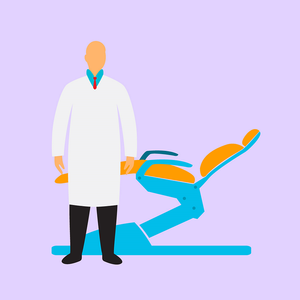The Role of Preventive Care in Modern Dentistry: Why It Matters
الجسم
In today’s fast-paced world, many people prioritize immediate solutions over long-term health strategies. However, when it comes to dental care, embracing a preventive approach can significantly impact oral health and overall well-being. Preventive care in dentistry focuses on maintaining oral health through routine check-ups, education, and early intervention, thereby reducing the likelihood of complex procedures in the future. This article explores the crucial role of preventive care in modern dentistry and highlights why it matters for patients of all ages.
Understanding Preventive Dentistry
Preventive dentistry encompasses various practices aimed at maintaining oral health and preventing dental diseases. This approach includes regular dental check-ups, cleanings, fluoride treatments, dental sealants, and patient education on proper oral hygiene practices. The goal is to identify potential issues early, educate patients about their oral health, and create a long-term plan to ensure healthy teeth and gums.
The Importance of Regular Check-Ups
One of the cornerstones of preventive care is regular dental check-ups, typically recommended every six months. During these visits, dental professionals perform comprehensive examinations that include:
-
Oral Health Assessment: Dentists evaluate the condition of your teeth, gums, and mouth, checking for signs of decay, gum disease, and other potential issues.
-
Professional Cleanings: Dental hygienists perform thorough cleanings to remove plaque and tartar buildup that regular brushing and flossing might miss. This cleaning helps prevent cavities and gum disease.
-
X-rays: Depending on individual needs, dentists may recommend X-rays to identify problems not visible during a standard examination, such as impacted teeth or bone loss.
Early detection of issues during check-ups can lead to simpler, less invasive treatments and prevent the need for extensive procedures down the road.
Education and Empowerment
Preventive care also emphasizes patient education, empowering individuals to take control of their oral health. Dentists and hygienists can provide valuable information on:
-
Proper Oral Hygiene Practices: Patients learn the correct techniques for brushing and flossing, helping them maintain their oral health between visits.
-
Nutritional Guidance: Understanding how diet affects oral health is vital. Dental professionals can guide patients on making healthier food choices that promote strong teeth and gums.
-
Tobacco Cessation: For patients who smoke or use tobacco products, dental professionals can offer resources and support to quit, significantly reducing the risk of gum disease and oral cancer.
By equipping patients with knowledge and tools, preventive care encourages them to adopt habits that contribute to lifelong oral health.
The Impact on Oral Health and Overall Well-Being
Preventive care in dentistry goes beyond maintaining a beautiful smile; it plays a significant role in overall health. Studies have shown a strong connection between oral health and systemic health conditions, such as heart disease, diabetes, and respiratory infections.
For example:
-
Gum Disease and Heart Health: Research suggests that bacteria from gum disease can enter the bloodstream, potentially leading to heart disease. Maintaining healthy gums through preventive care can reduce this risk.
-
Diabetes Management: Patients with diabetes are more susceptible to gum disease, which can further complicate their condition. Preventive dental care can help manage both oral and systemic health.
-
Pregnancy and Oral Health: Hormonal changes during pregnancy can increase the risk of gum disease, which may affect both maternal and fetal health. Regular dental check-ups can help ensure a healthy pregnancy.
By prioritizing preventive dental care, patients can reduce their risk of developing serious health issues, ultimately leading to a healthier, more fulfilling life.
Cost-Effectiveness of Preventive Care
Investing in preventive care is often more cost-effective than dealing with complex dental procedures later. Routine check-ups and cleanings typically cost less than treatments for advanced cavities, gum disease, or tooth loss, which may require fillings, crowns, or implants.
Additionally, dental insurance plans often cover preventive services, encouraging patients to take advantage of these benefits. By focusing on prevention, individuals can save money in the long run while maintaining their oral health.
Tailored Preventive Strategies
Preventive care is not one-size-fits-all; it should be tailored to each individual’s needs based on factors such as age, medical history, and oral health status. For example:
-
Children: Pediatric preventive care often includes sealants and fluoride treatments to protect developing teeth and instill good oral hygiene habits early on.
-
Adults: For adults, preventive strategies may involve regular check-ups, periodontal evaluations, and discussions about lifestyle changes that can impact oral health.
-
Seniors: Older adults may require more frequent check-ups to monitor for age-related issues, such as dry mouth, root caries, and gum recession.
By customizing preventive strategies, dental professionals can ensure that patients receive the appropriate care to meet their specific needs.
Conclusion
The role of preventive care in modern dentistry cannot be overstated. By prioritizing routine check-ups, patient education, and early intervention, individuals can maintain their oral health and prevent serious dental issues. This proactive approach not only enhances the quality of dental care but also contributes to overall well-being, emphasizing the interconnectedness of oral health and systemic health.
Investing in preventive care is a smart decision for individuals and families, promoting lifelong healthy smiles and reducing the risk of costly treatments in the future. By working collaboratively with dental professionals, patients can take control of their oral health, ensuring a brighter, healthier future for themselves and their loved ones.












تعليقات